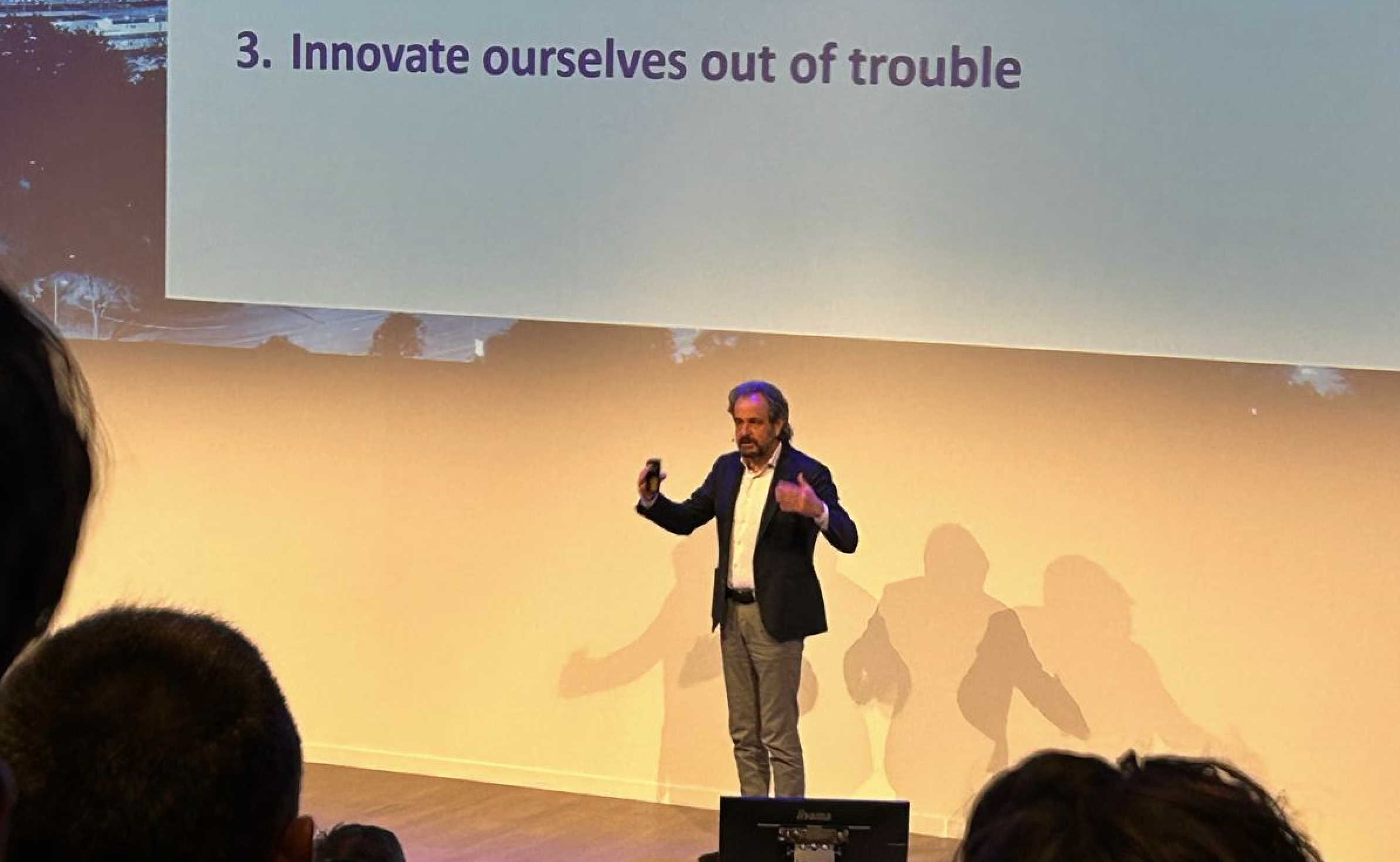
Whether it concerns comparing lung photos of cancer patients or detecting fraudulent transactions, data exchange is indispensable for banks, hospitals and other institutions. The Groningen-based company Branchkey in The Netherlands provides a privacy-preserving bridge between AI models. The start-up secured an investment in September through StartCapital Partners and the Netherlands Enterprise Agency (RVO). How will Branchkey proceed? Branchkey’s director Robin Schut answered 4 key questions.

More and more organizations and companies are making use of artificial intelligence (AI). They use it to improve their services or products. AI is capable of taking over complex tasks from humans. However, a lot of data is required for AI to function optimally and protecting privacy-sensitive information is thereby indispensable. The start-up Branchkey has only been around for a year, but is working hard towards its ultimate goal of securing and optimizing the transfer of information from AI systems. To this end, it makes use of Federated Learning. This is a newly developed technology that ensures that information exchange takes place through models instead of information being shared through data.
Sharing information through models: how does that work?
“We are the communicator between the different AI models of various agencies. Our Federated Learning platform runs calculations on the AI models, and insights from those are then sent back to the clients. We at Branchkey, like the customers, cannot see privacy-sensitive information. What you achieve with this is that similar companies or agencies can safely learn from each other’s data without being able to see it, and this in turn improves their own AI system. With this kind of system, it works like this: the more data, the smarter the artificial intelligence.”
“You can compare what we do to how voice assisants like Alexa and Siri operate. For example, if you state that you want to buy catnip, there’s a local AI system on your phone that goes to work on that. The audio clip remains on your phone, but specific data associated with the audio clip is sent to the cloud. This way, Google can provide you with information about what product you want to buy, but the company is not invading your phone’s privacy.”

Can you cite a practical example of how a hospital or a bank benefits from using this platform?
“For example, take the exchange of data from CT scans. Hospitals use AI models to make predictions based on those images. On that basis, they can determine whether or not a patient has cancer. The more data that can be viewed from other hospitals, the better the predictions become. With our platform, hospitals will be able to collaborate well with each other without compromising patient data. At the same time, the predictive value of the model gets better and better, and you are able to provide better care.”
“Alongside this, we are involved in a project involving anti-money laundering software. Banks analyze customers’ transactional data to determine whether fraudulent transactions have taken place. They employ AI models for this purpose. Criminals often have multiple accounts running at the same time at different banks and often apply the same money laundering trick at these different banks. So you want there to be more knowledge about all the ways to launder money. With the federated learning system, banks can securely share information concerning money laundering, and the detection process will improve.”
The technology behind artificial intelligence is getting better and more complex. But is there also enough attention being given to the ethical issues surrounding artificial intelligence?
“That discussion is incredibly important. Artificial intelligence can do wonderful things for society, but if data falls into the wrong hands then you have a huge problem. If we succeed in launching our product on the market, we would very much like to talk to government ministers and officials. This is absolutely necessary. Many AI systems are completely new and are barely regulated. Protection in Europe concerning which situations AI may be applied in is still almost non-existent.”
“But this cautious approach also has a downside. In China, privacy data is not as well protected as in Europe. Due to the vast amount of data, AI systems there are getting smarter all the time. I think it’s very important that our data is secure, but we in Europe must not start lagging behind other world leaders in this field. You have to be able to train the AI systems in a responsible way. The technology that we are working with can do a lot in that respect. I predict that Federated Learning will become increasingly important in Europe.”
Where will the focus lie for Branchkey over the coming years?
“We’re currently focusing on getting a lot of use cases into multiple sectors. If all goes well, we would like to expand to these sectors too. We’ve been setting up use cases in hospitals and the financial sector for some time now. In addition, I think it would be incredibly cool to expand into the agricultural sector. For example, consider using our system for farmers with milking machines that use artificial intelligence. Our platform can actually be applied in all sorts of places.”
“Our company is still in the early stages and we have a long way to go, but we are noticing more and more signals from the market that there is a need for our product and that’s fantastic to see. Of course, we are afraid that because of us, big tech giants will also get into Federated Learning, but we are going to make sure that our algorithms remain the very best by continuing to do a lot of research and attracting young talent. That’s where our strength lies.”
Read other stories about Groningen via this link.








